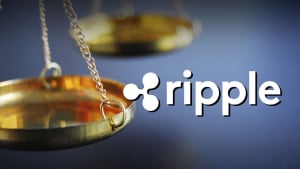
Disclaimer: The opinions expressed by our writers are their own and do not represent the views of U.Today. The financial and market information provided on U.Today is intended for informational purposes only. U.Today is not liable for any financial losses incurred while trading cryptocurrencies. Conduct your own research by contacting financial experts before making any investment decisions. We believe that all content is accurate as of the date of publication, but certain offers mentioned may no longer be available.
As the Ripple SEC lawsuit decision is currently awaited, attorney Jeremy Hogan has taken to Twitter to make a compelling argument on why XRP does not qualify as a security.
In a thread of tweets, Hogan explains that XRP can only "possibly" fit under the definition of an "investment contract" according to the legislative definition of security.
The #1 reason why XRP is not a Security (a thread).
— Jeremy Hogan (@attorneyjeremy1) April 9, 2023
First, under the legislative definition of a security, XRP can only POSSIBLY fit under the definition of an "investment contract." It is not a stock or bond, etc..
Even the SEC concedes this: "investment contract." pic.twitter.com/n9g7ZEos2n
XRP is neither a stock nor a bond, and he says that even the SEC concedes that XRP could only be deemed an "investment contract."
With this in mind, Hogan continues that an "investment contract" analysis is governed by the "Howey" case and its progeny. The "test" in the case (investment in a common enterprise with the expectation of profits from the efforts of others) was in response to a lower court opinion that a "speculative" investment was required.
He highlights a key fact: The Howey case did not focus on the "contract" part of the "investment contract." Instead, the "contract" was deemed necessary in its response to the lower court and had addressed the "contract" part of the test just before rendering the Howey opinion.
While these might seem legal technicalities, the issue, according to Hogan, is whether the SEC has proven that there was either an implied or explicit "contract" between Ripple and XRP purchasers relating to their "investment."
No contract
The simple basis of Hogan's argument is that the SEC has failed to argue that there was an implied or explicit contract of investment.
Instead, it puts forward an argument that tears the "investment" from the "contract." The SEC argues that the purchase agreement is all that is required, and that is all it proves. He says that a simple purchase, without more, cannot be an "investment contract."
It remains just an investment, like buying an ounce of gold, and there is no obligation for Ripple to do anything except transfer the asset. He further adds that in the case of Ripple, there was no such contract, and thus XRP cannot be classified as a security.
Hogan concludes that the designation "security" is not meant to protect a would-be investor from making bad decisions. The securities laws only require that offerors make certain disclosures regarding the contract that the purchaser is entering.


 Vladislav Sopov
Vladislav Sopov Dan Burgin
Dan Burgin